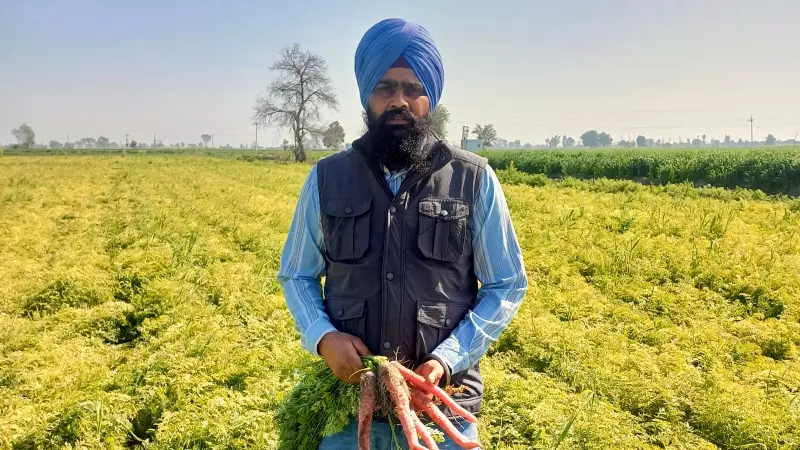
In the heart of Punjab's agricultural belt, where stubble burning has become an annual environmental crisis, one farmer from Tarn Taran district is rewriting the rulebook of conventional farming. While most farmers remain trapped in the traditional paddy-wheat rotation, this progressive agriculturist has not only eliminated crop residue burning but is generating staggering annual revenues exceeding ₹1 crore through his innovative, year-round farming model.
The 365-Day Farming Revolution
Unlike seasonal farmers who typically cultivate for only a few months each year, this Tarn Taran-based visionary maintains active agricultural operations throughout all twelve months. His secret lies in strategic crop diversification and perfect timing of harvest cycles that ensure continuous income flow.
"While others are burning stubble and complaining about losses, my fields are always productive," shares the farmer, whose success story has become a talking point across agricultural circles in Punjab.
Breaking Free from Traditional Cycles
The conventional paddy-wheat pattern that dominates Punjab's agricultural landscape has multiple drawbacks:
- Environmental damage from stubble burning
- Depleting groundwater resources
- Diminishing soil fertility
- Uncertain profitability
By moving beyond this limited approach, our featured farmer has created a resilient agricultural enterprise that thrives regardless of seasonal challenges.
The Multi-Cropping Advantage
His farming strategy incorporates carefully selected crops that complement each other in terms of:
- Seasonal requirements
- Market demand patterns
- Soil nutrition needs
- Labor distribution
This intelligent crop rotation ensures that while one crop is reaching maturity, another is being sown, and a third might be ready for harvest—creating a perpetual cycle of productivity and income.
Economic and Environmental Win-Win
The most remarkable aspect of this success story is how it demonstrates that environmental responsibility and economic prosperity can go hand-in-hand. By completely eliminating stubble burning from his practice, the farmer has:
- Improved local air quality
- Enhanced soil health through natural residue management
- Reduced dependency on chemical fertilizers
- Created additional revenue streams from what was previously considered waste
"Sustainability isn't just good for the environment—it's excellent for business," he emphasizes, pointing to his seven-figure earnings as proof.
A Model for Punjab's Agricultural Future
As Punjab grapples with the dual challenges of farmer distress and environmental degradation, this Tarn Taran success story offers a viable alternative. The farmer's approach provides a practical blueprint that could potentially transform the state's agricultural landscape if adopted more widely.
His journey from conventional farming to agricultural entrepreneurship demonstrates that with innovation, planning, and willingness to change, farmers can achieve unprecedented success while contributing positively to environmental conservation.
The story serves as an inspiration and practical guide for other farmers looking to break free from unprofitable cycles and embrace a more sustainable, profitable future in agriculture.





